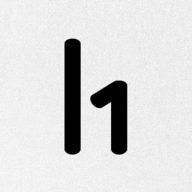

HackerOne and Check Point CloudGuard WAF are key players in the cybersecurity market. HackerOne excels in bug bounty program management enhancing vulnerability discovery, whereas Check Point CloudGuard WAF offers comprehensive threat detection, suggesting CloudGuard's advanced security might lead it to have an upper hand in overall threat mitigation.
Features: HackerOne offers an extensive bug bounty program management, third-party integrations, and rapid vulnerability reporting. Check Point CloudGuard WAF features high-grade security like Intrusion Prevention System, AI-driven container security, and comprehensive threat prevention capabilities, focusing on application security and compliance.
Room for Improvement: HackerOne could enhance features for easier integrations with varying tools, improve resource allocation for bug report validation, and streamline communication with participating security teams. Check Point CloudGuard WAF might benefit from reducing the complexity of initial configuration, decreasing reliance on signature databases, and enhancing automated threat detection accuracy.
Ease of Deployment and Customer Service: HackerOne provides a straightforward integration within existing security frameworks coupled with responsive customer service. Check Point CloudGuard WAF's deployment is more complex due to its extensive configuration, but their strong customer support is equipped to handle technical intricacies, ensuring support during complex deployments.
Pricing and ROI: HackerOne presents a cost-effective approach with scalable pricing, offering favorable ROI through effective vulnerability management. In contrast, Check Point CloudGuard WAF necessitates a larger initial investment; however, its sophisticated security measures can potentially yield substantial long-term ROI by mitigating security risks effectively.


Check Point CloudGuard WAF (Web Application Firewall) is a cloud-native security solution designed to protect web applications and APIs from known and unknown threats. It employs contextual AI and machine learning to prevent zero-day attacks without relying on traditional signature-based detection methods, ensuring that applications remain secure even as new threats emerge.
CloudGuard WAF offers preemptive protection against vulnerabilities by using machine learning to identify and block zero-day threats like Log4Shell and Spring4Shell. It provides precise detection capabilities, minimizing the need for constant fine-tuning and reducing false positives. Designed for cloud-native environments, CloudGuard WAF integrates seamlessly with CI/CD pipelines, supporting automated deployment and configuration through infrastructure as code (IaC) or APIs.
Key Features of CloudGuard WAF:
Benefits of CloudGuard WAF:
CloudGuard WAF is particularly suitable for organizations using modern, cloud-based architectures that require robust, automated security measures for both applications and APIs. Its capabilities are valuable for industries that handle sensitive data, such as finance or healthcare, where compliance and data protection are critical. Pricing and support are typically customized to the specific needs and scale of the deployment, with options for continuous updates and maintenance through Check Point's managed services.
CloudGuard WAF by Check Point provides advanced, AI-driven protection for web applications and APIs, offering automated, precise threat prevention and easy integration with cloud-native environments, ensuring robust security without the need for extensive manual configuration.
We monitor all Application Security Tools reviews to prevent fraudulent reviews and keep review quality high. We do not post reviews by company employees or direct competitors. We validate each review for authenticity via cross-reference with LinkedIn, and personal follow-up with the reviewer when necessary.